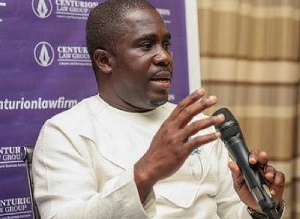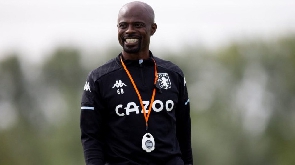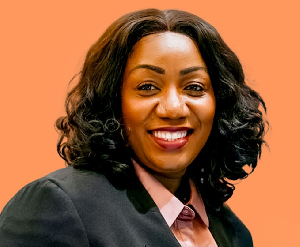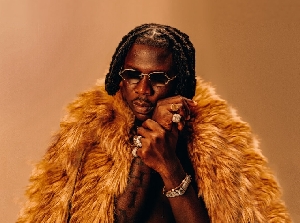At a recent confabulation in the Eastern Regional Capital of Koforidua, some Ghanaian media professionals, largely print journalists and editors, were reported to be calling for constitutionally democratic measures in order to ensure that the mass-communication trade becomes “more proactive and responsive [to]…the felt needs of the people” (Ghana News Agency 5/18/07).
From the preceding, two significant issues appear to be fore-grounded: the critical and salutary acknowledgment by these local practitioners of the trade that responsible journalism in the so-called Fourth Ghanaian Republic is sorely lacking. But whether such lack is the especial responsibility of the Government, as these Eastern Regional media practitioners appear to be suggesting, is another question altogether. For instance, the conferees called for “constitutional amendments that will empower the National Media Commission (NMC)…to license as well as sanction journalists, akin to the norm…[of such] professional groupings as…medicine, pharmacy, architecture, engineering and teaching” (Ghanaweb.com 5/18/07).
Even more quaint is the following demand: “…that whether trained or otherwise, all journalists in Ghana must be licensed[;] however, the purpose of [such] licensing must solely aim at instigating [sic] professionalism and should neither have a caveat to curtail the practice itself nor…make it pander to sectional interests or [render it] pliant to political shadings” (Ghanaweb.com 5/18/07).
Now the latter demand is a bizarrely big one, if yours truly were asked for an honest opinion. It is rather tragic for a people who had until a little over seven years ago epically struggled against dictatorial “shit-bombing,” when they refused to toe the P/NDC party line, as it were, to be curiously railing against the governmental offer of “excessive professional freedom.” I had since long concluded that the slew of lawsuits brought against erring journalists, for ill or weal, have adequately served to judicially and “constitutionally” regulate the professional conduct of our media practitioners. However, if, as the Eastern Regional journalists are claiming, such salutary safeguards are woefully inadequate, then, the future of Ghanaian Journalism is very bleak, indeed. And the pity of it all, come to think of it, is not that the Kufuor-led New Patriotic Party (NPP) had not helped that much but, ironically, the bane of post-NDC Ghanaian journalism inheres in the fact that attempting to “liberate” the pathologically and perennially “enslaved” mind may not, in reality, be such a feasible proposition at all – perhaps even an impossible task, one may be tempted to interject.
Indeed, the question of “compelling” every individual Ghanaian journalist to obtain a “license” in order to practice the trade eerily recalls the tenure of the extortionate Convention People’s Party (CPP), when only Government-controlled newspapers were permitted a berth on the newsstand. And to hear Professor Dennis Austin retail this apocalyptic legend makes the country’s immediate postcolonial era also seem to be its most benighted and regressive epoch; for by 1966 when the “African Show Boy” was legitimately ousted, not a single privately-owned and published newspaper, daily or weekly, could be found on the newsstand. And this was squarely not for the woeful want of talent or enterprise (see Politics in Ghana: 1946-1964).
Indeed, nothing meaningful stands to be gained by “licensing” individual Ghanaian journalists; and to ensure the inculcation of sterling professionalism into the practice of the trade, what needs to be done is to regularly organize seminars aimed at upgrading both the fundamental skills and ideological orientation of the serious practitioners of this indispensable institution in postcolonial Ghanaian society. In this vein, what needs to be done is to encourage all practitioners of the trade to align themselves with recognized, regional professional associations in order to readily avail themselves of such critical upgrading enskillment programs as may be periodically organized or hosted under the auspices of these regional and local associations.
The preceding notwithstanding, Dr. William Kofi Ahadzie’s suggestion that “it must be the abounded [sic] [bounden?] interest of the government to ensure the survival of all newspapers[,] whether they support its strategy of governance or otherwise,” is patently absurd, if only because such suggestion grossly overlooks the primary fact of all democratic governments being obligated to create entrepreneurial distance where private capital is concerned. In other words, the sole bounden duty of the government is to ensure the salutary cultivation and maintenance of an unfettered media milieu. Needless to say, not all newspapers in the private sector of Fourth Republican Ghana warrant such noble designation in practice, including, of course, one that is allegedly owned and operated by the most violent and virulent military dictator ever to blight Ghana’s postcolonial landscape.
And since the second question regarding the constitutional practice of journalism has already been adequately tackled above, the ultimate question now becomes the nature and extent to which the National Media Commission is to be further empowered. And here, we boldly contend that the NMC, as it stands, is adequately empowered. However, if it is not already entrusted with the authority to license media enterprises or establishments, not individuals, then we are unreservedly inclined to concur with the need for the Government, with the necessary Parliamentary approval, of course, to promptly do so.
Still, we prefer that the professional sanctioning of journalists, vis-à-vis the practice of their trade, be handled by the judiciary or courts of law. Indeed, we chose the above caption because we unreservedly agree with the age-old American dictum which exhorts thusly: “Be careful of what you wish for; you might just get it.” In sum, a Trojan Media Horse is the last gift that serious Ghanaian practitioners of the trade ought to be hoping for.

Views expressed by the author(s) do not necessarily reflect those of GhanaHomePage.


















